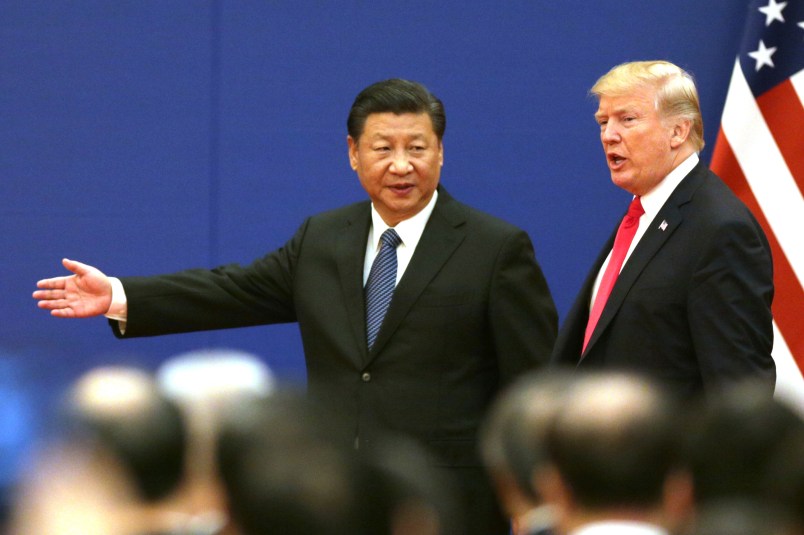BEIJING (AP) — U.S. President Donald Trump was a cooperative partner for Beijing’s sweeping efforts to control the message of his heavily choreographed visit to China.
Trump and his Chinese counterpart, Xi Jinping, took no questions at an event Thursday billed as a news briefing, a reduction of already minimal press interaction during previous visits by American leaders.
During a 2014 visit by then President Barack Obama, Xi took a symbolic single question from a reporter for a Chinese state newspaper. He brushed off an American reporter’s question about whether Beijing might ease restrictions on journalist visas, saying vaguely that media outlets had to obey China’s laws.
Trump, who has called the media the “enemy of the American people,” also took no questions during an event at which Chinese companies signed contracts to buy American jetliners, soybeans and other goods.
Trump’s visit comes at a time when he faces uncomfortable questions at home about Russia and possible gun controls following deadly mass shootings.
Xi almost never takes questions from reporters.
“Both of them are sensitive and vigilant about the media,” said Zhang Lifan, an independent political analyst in Beijing. “They worry there might be some tricky questions that would embarrass them.”
Meanwhile, as state television showed Trump and Xi visiting the imperial palace in Beijing, censors scrubbed comments about Trump’s visit from China’s lively internet forums.
Reports by official Chinese media including the ruling Communist Party’s main newspaper, People’s Daily, dominated posts on the popular Twitter-like microblog service, Sina Weibo.
The comments function on most posts, which often attract witty remarks by Chinese internet users, appeared to have been disabled or limited. Only a few dozen “carefully chosen” comments with positive messages were allowed.
According to Free Weibo, a site that tracks online censorship, posts that were deleted include humorous comments about the remarkable lack of traffic congestion in Beijing as Trump’s motorcade passed Tiananmen Square.
Others asked whether Trump was able to get on Twitter, which China’s internet filters block the public from seeing. (Answer: Yes, he was.)
The censorship showed the government’s “lack of confidence,” said Zhang.
“If they had enough confidence, why be so sensitive about people’s criticisms?” he said.







Of course he did. I shudder to think of what he said/agreed to in private.
Because all of these nuances of diplomacy are waaaay over this head. And he is extremely tired at this point. Its a combination that Xi was sure to capitalize upon.
Birds of a feather.
OT about image: Peter Souza about BO
Trump is no friend to a free press. If he could bring Chinese-level censorship to this country tomorrow, he would happily do so. How many times, in how many ways, does he have to demonstrate this before people understand that when he swore to “preserve, protect, and defend the Constitution of the United States”, he was lying?
What do you mean? Trump’s a big fan of the Constitution. Or at least of the one part he’s heard about.
That would be Amendment No. 2.